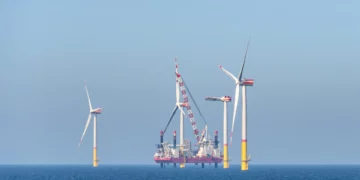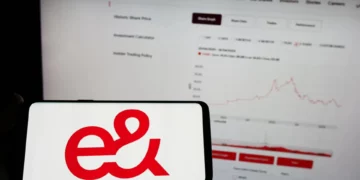In international trade, the main importers of seafood from Japan in 2019 were China (24.3%), the USA (20.4%), South Korea (17.5%), Hong Kong (13.6%), and Taiwan (7.4%).
Twelve years following the reactor meltdowns at the Fukushima Daiichi nuclear power plant, Japan is releasing around 1.2 million metric tons of treated radioactive wastewater into the ocean, a process which began last Thursday. This move has seriously disrupted the Asian seafood market (where Japan is a major player) over health and environmental concerns. This is despite the International Atomic Energy Agency (IAEA) giving its stamp of approval to the move, stating that there is little to no health risk and all precautions have been met.
What exactly is happening?
In the aftermath of the 2011 tsunami disaster, which led to a catastrophic nuclear plant meltdown, Japan has been storing tainted groundwater and coolant water from the nuclear facility in large storage tanks. These tanks are anticipated to reach their maximum capacity soon. Consequently, the Japanese government has opted to release the treated radioactive wastewater into the Pacific Ocean after a two-year period.
The rationale behind this decision is that it aligns with globally recognised nuclear safety norms, taking into account all available alternatives. The government contends that the existing tanks must be cleared to make space for plant decommissioning necessities, such as storing highly contaminated waste and the remains of melted fuel debris. The tanks currently stand at 96% capacity and are projected to reach their maximum limit of 1.37 million tons in the autumn.
Seafood holds a major position in international trade for food, even more so than meat and dairy. According to the United Nations database, the global trading of seafood has increased from $7.57 billion in 2009 to $12.36 billion in 2019, which is a rapid growth of 63.2% over the decade.
How are people and businesses reacting?
In international trade, the main importers of seafood from Japan in 2019 were China (24.3%), the USA (20.4%), South Korea (17.5%), Hong Kong (13.6%), and Taiwan (7.4%). Since the 2011 Fukushima incident; however, the contamination of water has drastically affected the seafood industry of Japan. South Korea, previously the largest importer of fish from Japan, greatly reduced its seafood imports from Japan from around 81.5 thousand MT in 2010 to 29 thousand MT in 2019.
China has responded with a total ban on all aquatic products from Japan, citing health and environmental safety concerns. While many consider this overblown and more a political move than a ‘health’ one, the Chinese government, for now, has refused to reconsider. Chinese people, too, have been up in arms, with several reports of phone harassment of the Japanese embassy. The USA, meanwhile, has firmly supported the move, citing the track record of the IAEA and calling it a necessary move.
In the meantime, South Korea has been more reserved, expressing trust in the IAEA’s judgment and partially restricting seafood from certain districts in the area. However, South Korean businesses and consumers are not so sure, and many have stopped buying all Japanese seafood. North Korea, too, has criticised the move.
Within Japan, there’s a noticeable split in public opinion as well. The government has undertaken initiatives to assuage citizens’ concerns and pacify the industry. They’ve pledged financial support in the form of subsidies and a contingency plan to purchase excess seafood if sales plummet. Recently, authorities in Osaka suggested offering Fukushima seafood in government facilities to prove its safety.
While most authorities seem to agree that the contamination is well below dangerous levels, most East Asians seem unconvinced. Whether their opinions can be changed will decide the future of the already struggling Fukushima fishing industry.

















